On February 14, a leading news website published a list of political power couples, ranking former SNP leader Nicola Sturgeon and Peter Murrell second out of 40.
One day later, Sturgeon had announced her intention to stand down as First Minister.
In the four weeks that followed, Murrell’s stewardship of the SNP came under scrutiny amid an increasingly acrimonious and poorly managed leadership contest.
This ultimately resulted in his resignation after he misled not only the press but even his own party communications team about the number of members the SNP has.
Just two weeks later – and just a week after Sturgeon finally left government – police launched a dawn raid on the couple’s Glasgow home and Murrell’s former office.
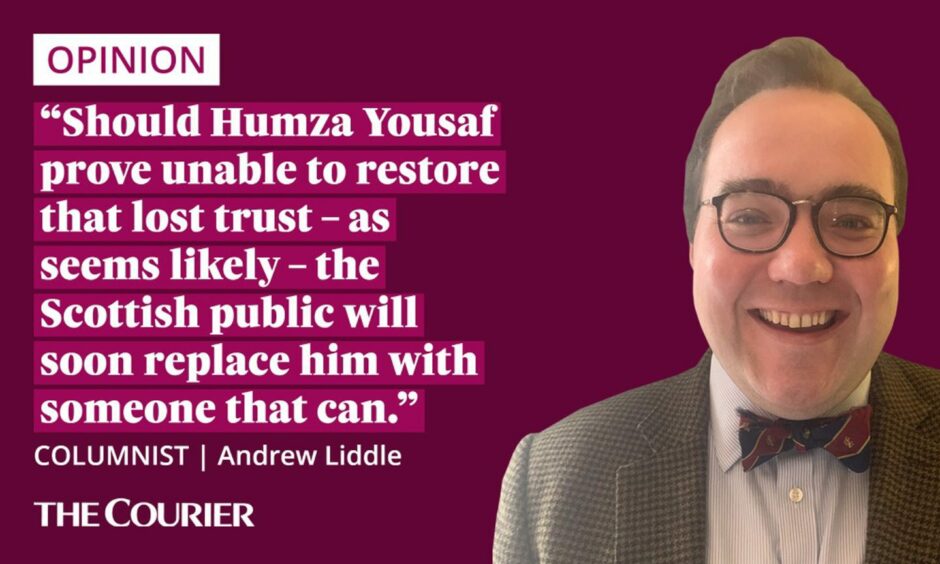
Officers also took the one-time SNP Chief Executive and former First Minister’s spouse into custody (Peter Murrell was later released without charge pending further investigation).
Not since the glinting guillotine of the French Revolution has there been such a swift and decisive end to a political power couple’s reign.
Murrell inquiry throws new light on Sturgeon’s decision to quit as SNP leader
While legal matters will now take their course, numerous political questions abound.
The first set are for the now former First Minister. And they focus particularly on what Sturgeon knew, and when, about the police investigation and possible raid and arrest.
Given the sudden and unexpected manner of her resignation, people in Scotland will rightly question whether she was given any advanced notice of these proceedings (A spokesperson for the ex-FM said on Wednesday night “Nicola Sturgeon had no prior knowledge of Police Scotland’s action or intentions.”)
That her husband was clearly a person of interest in investigations only clouds the matter further.
Questions are also not in short supply for the SNP itself, which rather pitifully pointed to a planned “governance and transparency review” when responding to reports of Murrell’s arrest.
(Newsflash: Police Scotland is already doing that for you).
How might Murrell arrest have influenced SNP leadership contest?
Of particular interest politically in relation to the SNP – alongside a certain dip in support in the polls – is the shortness of the leadership campaign itself.
People in Scotland will rightly wonder if the leadership election was trimmed back to avoid the spectacle of the party’s Chief Executive being taken into police custody mid-contest.
Given the state of SNP operations was such a contentious issue during the campaign, it is hard to believe that Humza Yousaf – who after all said he had absolute confidence in Murrell – would have still managed to stagger over the finish line had his friend and mentor just been arrested.
Any sense the contest was gerrymandered to favour Yousaf is likely to strengthen supporters of Kate Forbes, who promised greater transparency of SNP operations as part of her campaign.
But the most serious questions are, of course, for Yousaf himself.
Can Yousaf restore trust in SNP?
He will undoubtedly and rightly face the same logistical questions as his predecessor, namely what he knew about a possible police raid and when.
He has already said he was not informed of Murrell’s arrest in advance.
But there will be further scrutiny to come, not least if there are further arrests or serious issues uncovered.
Yet there is also a more fundamental question facing the new First Minister.
And it is one that will now surely come to define his premiership.
Namely: can he restore trust in the SNP and, in effect, the wider Scottish Government after what has been – regardless of the outcome of the police investigation – a traumatic, humiliating, and destabilising affair?
NEW: Police evidence tent erected outside the home of former SNP exec Peter Murrell after he was arrested amid party finances investigation.
The Glasgow property he shares with his wife Nicola Sturgeon is sealed off by detectives. @SkyNews pic.twitter.com/zemZppnoH5
— Connor Gillies (@ConnorGillies) April 5, 2023
Yousaf, as First Minister, is the man people will now look to to restore that lost trust in Scottish politics and its culture, which has been severely destabilised by the conduct of his predecessor and his party.
The scale of the challenge facing him is only accentuated by the fact that he has been at the very heart of Scottish politics for more than a decade, and a close confidant of many of those now responsible for degrading it.
Should Humza Yousaf prove unable to restore that lost trust – as seems likely – the Scottish public will soon replace him with someone that can.
In the meantime, it seems this saga – and the damage it is causing to Scotland’s reputation at home and abroad – is only likely to continue.
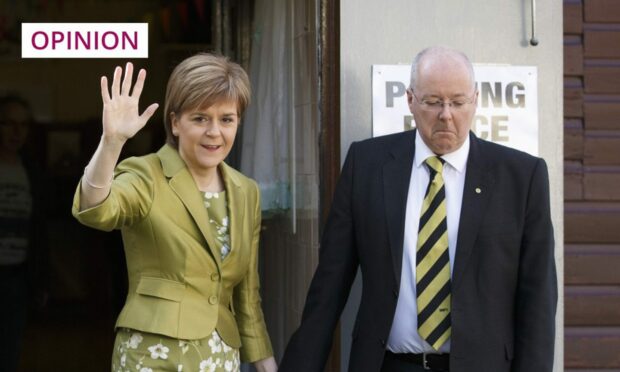
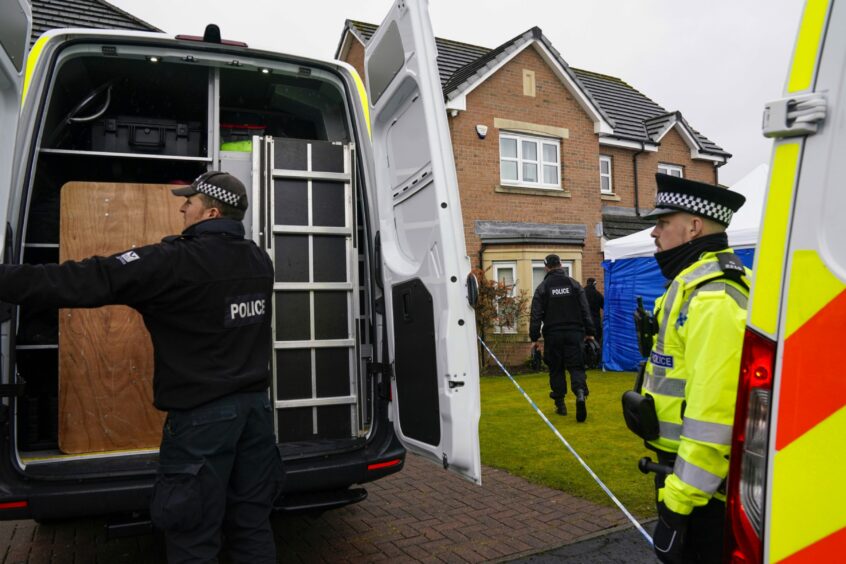
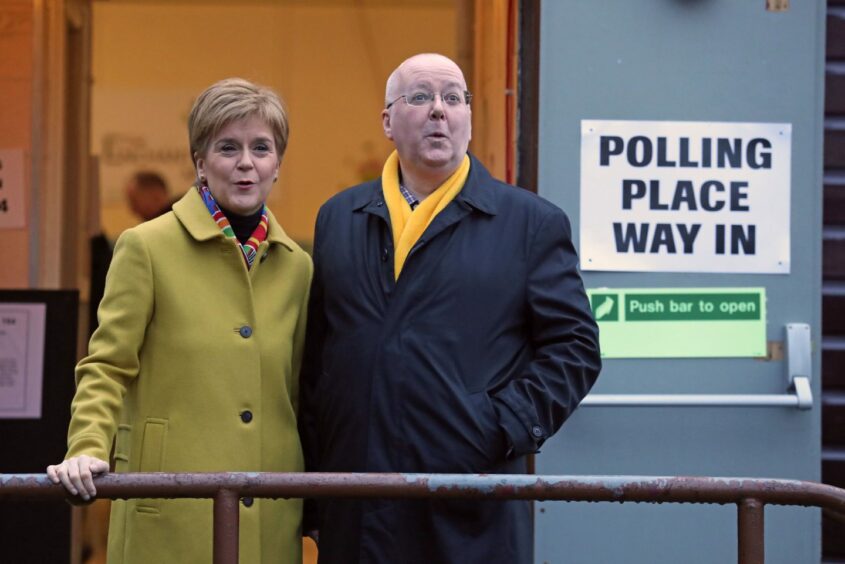
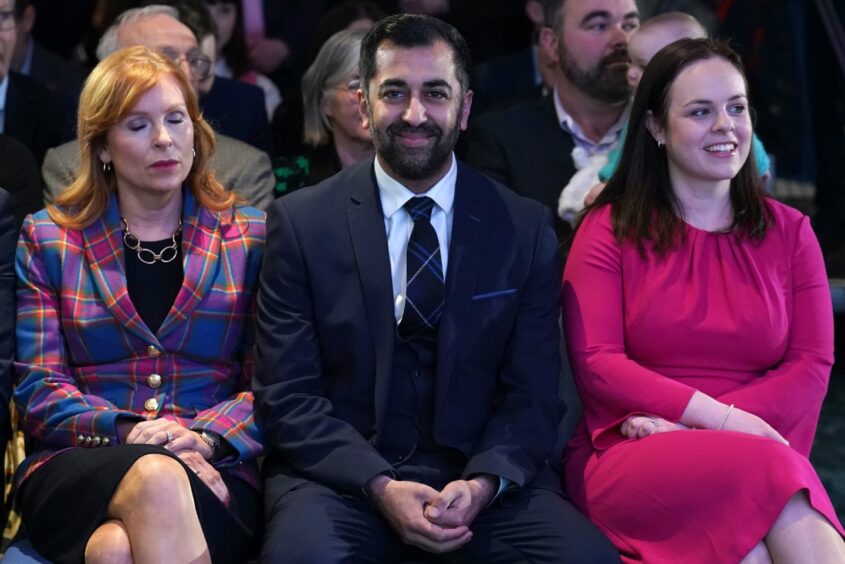










Conversation